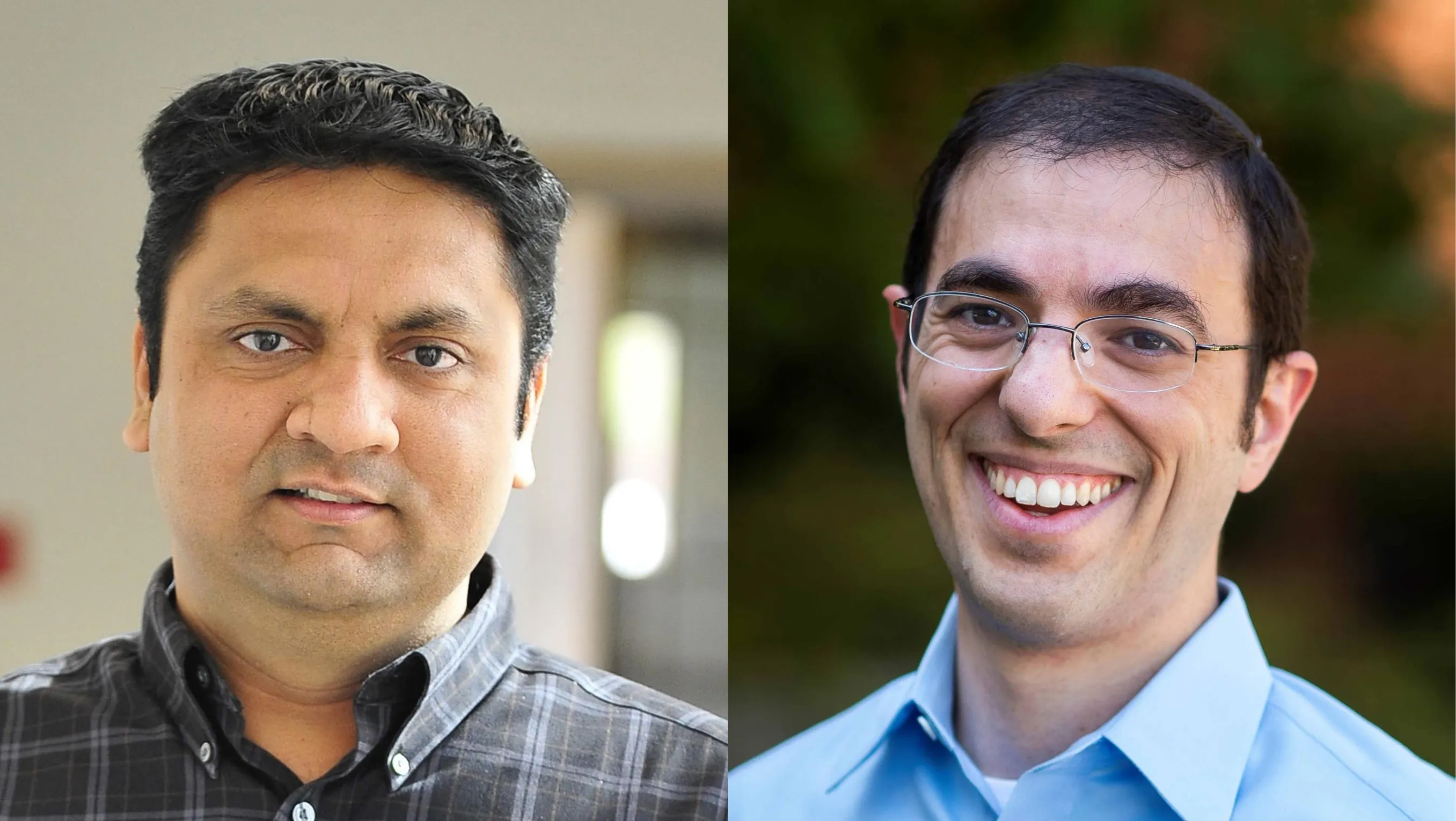
Two faculty members from the University of Maryland Institute for Advanced Computer Studies (UMIACS) were honored earlier this year for their influential research in data stream systems.
Daniel Abadi, the Darnell-Karnal Professor of Computer Science, and Amol Deshpande, a professor of computer science, each received a Test of Time at the 2025 Conference on Innovative Data Systems Research (CIDR), held in January in Amsterdam.
Abadi and Deshpande were part of research groups that developed innovative systems instrumental in advancing real-time data processing.
Abadi co-authored a paper, a flexible and scalable optimization model for server and sensor networks, which introduced a new fault-tolerance model with consistency-availability trade-offs. Deshpande contributed to a paper on TelegraphCQ, a system developed at University of California, Berkeley (UC Berkeley) to manage real-time data from dynamic sources like sensors, networks and online services.
In receiving Test of Time awards at CIDR, both papers were recognized for introducing innovative concepts that have profoundly influenced how researchers and industry professionals handle streaming data today.
Abadi’s award-winning paper, published in 2005 while he was earning his doctorate at the Massachusetts Institute of Technology, introduced Borealis—a powerful system for analyzing real-time streaming data from sources like sensors, servers and financial markets. Borealis allowed users to revise results as new data arrived and featured “time travel” to replay or simulate data scenarios. It also enabled queries to update on the fly, a crucial feature for fast-changing environments like security monitoring or stock trading. Borealis balanced performance, accuracy and system load across networks of servers and small sensors, making it a groundbreaking tool for high-stakes, dynamic environments.
Abadi says Borealis addressed the growing need to analyze data as it streamed in, enabling immediate responses. This real-time approach proved especially valuable in fields like server log analysis, environmental monitoring, and stock trading, where timely insights offered far greater benefits than delayed analysis.
Deshpande’s work on TelegraphCQ, published in 2003 during his doctoral studies at UC Berkeley, addressed the challenges of processing continuously changing data from sensors and mobile devices. Unlike traditional databases, TelegraphCQ processed live data streams and adapted to variations in data speed, volume and user demands.
It introduced a dataflow processing model, where data was monitored and processed as it streamed in, rather than being pulled from a static database. TelegraphCQ supported continuous queries that adapted to changing data, ensuring efficient real-time processing while responding to fluctuations in data availability, system performance, and user needs. The system represented a significant advancement in managing data in networked environments and served as a foundational tool for handling large-scale real-time data.